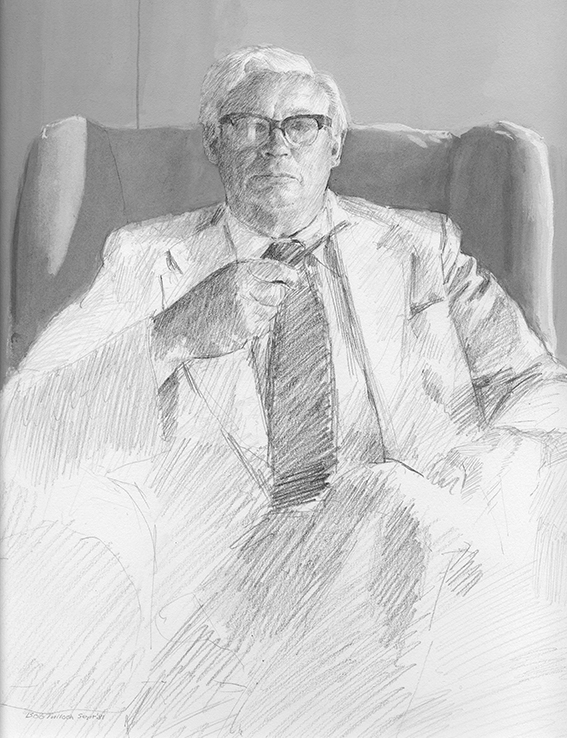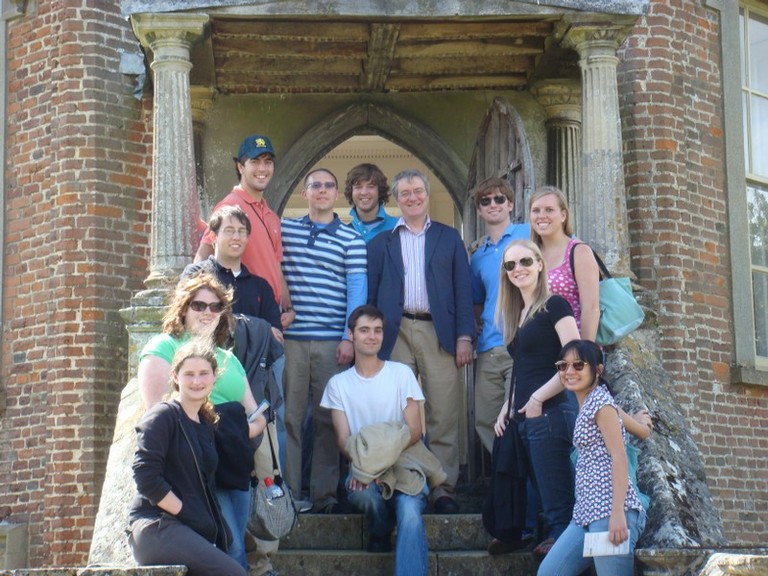History Features
A week in the life of a don, 1960 and 2007
Douglas Price was an undergraduate at Keble between 1933 and 1936, and worked for a B Litt thereafter. His military service in the Second World War culminated in his appointment to the Head of the Historical Section of SHAEF. He returned to Keble as History Tutor in 1949, and spent the rest of his working life in service to the College. He was Dean between 1950 and 1962.

Douglas Price’s diaries record much of the administrative and tutorial grind of the long-serving History Fellow, Editor of the Record, and College Dean.
The week beginning Monday 29 February 1960 might be taken as typical, though Price records Hilary as his consistently heaviest teaching term. In that week he gave twenty tutorials (three of them on Saturday morning); he gave a lecture (one hour), and held a Faculty documents class (one-and–a half hours). No sessions with graduates are recorded that week, though they appear occasionally elsewhere. He nevertheless contrived to keep the early part of the afternoon free, taking strolls in the parks, or driving to Wigginton where he kept a house. During that week there was one trip to London by the 12.15 pm train to do transcription work in the library of the Society of Antiquaries, but he was back in Oxford by 7.30 pm. On Thursday 3 March he records casting his vote in the election for Chancellor for the University, the occasion when Harold Macmillan beat Oliver Franks by a narrow margin. On the Saturday he lunched with several old members up to vote in the election, and in the afternoon picked up a friend from Wigginton to drive him into Oxford to vote. There were a variety of College and University related dinners: on Tuesday he attended the Smaller Association (a dining society of Faculty members) Dinner and on Thursday he was a guest of the Officer Training Corps. He dined in College on the Friday evening, and was entertained with colleagues by the JCR after dinner, after which he discussed appeal business with Davidge and others for an hour-and-a-half. On the Saturday evening he gave a dinner party in his rooms in College (catered for by the chef) prior to attending a performance of Purcell’s Dido and Aeneas by the Keble College Musical Society at the Wesley Memorial Church. His Sunday was taken up with a lunch engagement at Cuddesdon, a Sunday school class at 2 pm; a session of correspondence and report writing in College, followed by Evensong at 6.00 pm. If the week had an unusual feature it was that there was no College meeting, but it is clear that gaps in the schedule were filled with the mundane task of testimonial writing.
It is striking just how much of Price’s routines revolved around the College. He regularly describes discussions on matters of College business into the early hours of the morning, and the hosting of student after-dinner celebrations in his rooms. Vacation schedules were less punishing, as his research was not a constant preoccupation, but Price spent a lot of time on The Record and later on advowsons business.

